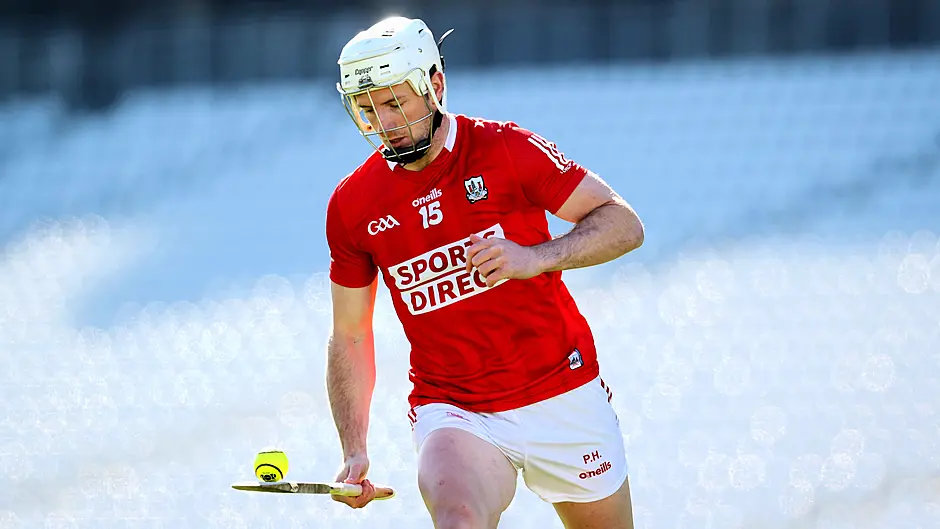BY JOHNNY CAROLAN
AFTER three games in Division 1 Group A of the Allianz Hurling League, Cork have scored 14 goals – one more than the other five counties combined.
There is an asterisk of sorts attached in that seven of those goals came against Westmeath, but it should equally be pointed out that neither Galway or Waterford could manage to find the net as often against the Lake County, scoring five and one respectively. Even so, the trend is very encouraging, especially given that the Rebels have been somewhat goal-shy in recent times.
Cork’s goal scorers in the league have been Alan Connolly (4), Patrick Horgan (3), Alan Cadogan (1), Shane Barrett (1), Luke Meade (1), Tim O’Mahony (1), Robbie O’Flynn (1), Jack O’Connor (1) and Shane Kingston (1).
When Cork won the hurling leg of the double in 1990, they scored 18 goals in five games, including a 5-15 to 2-21 win over Galway in the final. However, by the time of the next Liam MacCarthy title in 1999, things had changed – one goal was scored in four matches, with the 0-13 to 0-12 final victory over Kilkenny the first decider not to have a goal.
This weekend marked the 30th anniversary of the last time Cork won a championship match scoring more goals and fewer points than their opponents – 2-10 to 0-13 against Waterford in 1991 – and while there have been some successes in the interim, they have been powered by high points volumes.
Last year, though, there was an indication of things changing. In the 2020 league, Cork scored 11 goals in five matches, a tally which was four greater than the next best sides in Division 1 Group A, Waterford and Tipperary. Kilkenny did also bag 11 goals in Group B but Brian Cody’s side have long been the gold standard in terms of green flags.
The All-Ireland finals of 2007 and 2008 against Limerick and Waterford respectively stand out as examples of the Cats going for their opponents’ throats with early goals. While a seven- or eight-point lead at an early stage in the game can be overturned, there is a psychological value attached to a goal and to concede so soon after the start can leave a team reeling. Conversely, when Kilkenny’s five-in-a-row bid came to ground, against Tipperary in the All-Ireland final, they actually scored more points – 18 to 17 – than their rivals, but a Lar Corbett-inspired Tipp had four goals to Kilkenny’s one.
On a similar theme, Cork out-pointed Waterford by 20 points to 19 in the 2017 All-Ireland hurling semi-final, but the goals count was four to nothing in the Déise’s favour. Perhaps the strongest signpost of the imbalance was when Cork beat Westmeath in the 2019 championship, scoring 1-40 to their opponents’ 0-20. In that sense, the 7-27 to 0-15 win against the same opposition was telling.
‘That is something we are working on,’ Kingston said after the Westmeath match.
‘We spoke about it before. At times, that'll come off and other times it won't and you just have to take your point. When they come off, they are great and it did at times today and it did at times in the other games, but other times it doesn't and you get turned over.
‘With respect to Westmeath, this was really about focusing on us, see could we back a performance with a performance, with a performance and not bring any complacency into our game today. Secondly, we weren't taking anything for granted. We may have done that last year up in Westmeath and we were very, very lucky to get a result up there, really lucky. That was in the back of our minds today. We didn't want to be in a dogfight with 15/20 minutes to go.’
What will have been most encouraging for the management is the varied way in which Cork have managed to get goals. The precise, short-passing game employed lends itself to intricate running moves and there have been well-worked sequences leading to chances – with players passing up easy point-scoring opportunities in favour of passing to a better-placed team-mate.
On top of that, though, turnovers close to the opposition’s goal has been a fruitful source of opportunities and that too points to a cohesive approach. The defending from the front has made Cork harder to play against, with players working together to press opponents in possession – and, while the 14 goals for are a good sign, the solitary one against is further proof of the unity of purpose within the team.
However, they will face their biggest test to date on Saturday against Munster, league and All-Ireland champions Limerick in the LIT Gaelic Grounds (7.15pm throw-in, live on RTÉ). If the goal trends can continue against John Kiely’s side, then belief will grow that Cork can make a real championship impact.










